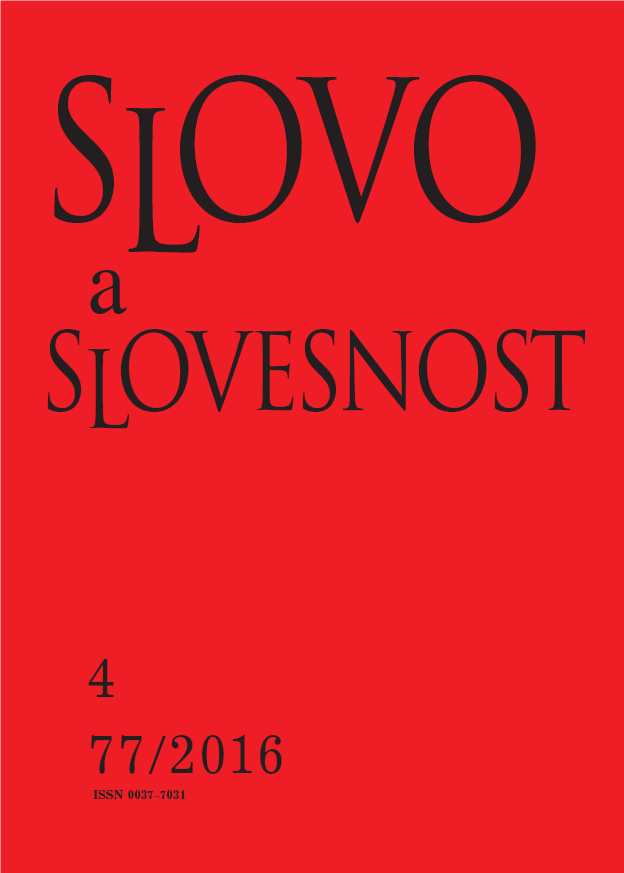The problem of Proto-Balto-Slavic ‘aspirates’ revisited
The problem of Proto-Balto-Slavic ‘aspirates’ revisited
Author(s): Ondřej ŠefčíkSubject(s): Language studies
Published by: AV ČR - Akademie věd České republiky - Ústav pro jazyk český
Keywords: Indo-European; phonology; aspiration; voice; stops
Summary/Abstract: The topic of this paper, as its title suggests, is the fate of the original Indo-European (IE) aspirates in Balto-Slavic, or possibly in its direct precursor, Proto-Balto-Slavic. In contrast with the Indo-European protolanguage, which is generally reconstructed with three modal classes of stops, both the Baltic and the Slavic languages are modeled on the opposition based on the feature /±voice/ only, with the opposition based on the feature /±aspiration/ not directly attested. Due to this distinction between IE and Balto-Slavic, it is assumed that the original opposition of aspiration was lost at some point during the Proto-Balto-Slavic period. The mechanism of this loss and the question of ‘voiceless aspirates’ are discussed as well. In the paper it is demonstrated that there is no reason to believe that ‘voiceless aspirates’ and ‘voiced aspirates’ ever formed a category of ‘aspirates’, proportional to the opposition between ‘voiceless unaspirates’ and ‘voiced unaspirates’, or to assume that both ‘aspirates’ ever existed at the same moment.
Journal: Slovo a slovesnost
- Issue Year: 77/2016
- Issue No: 4
- Page Range: 300-315
- Page Count: 16
- Language: English

